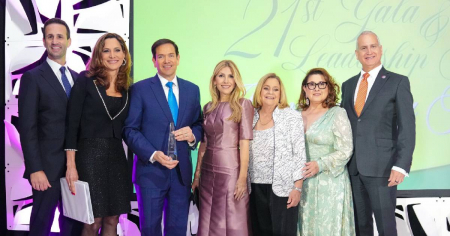The Cuban regime escalated its rhetoric this Friday in its verbal confrontation with the United States, accusing Washington of attempting to overthrow the government by force, with an offensive that, according to Deputy Foreign Minister Carlos Fernández de Cossío, is now just one step away from becoming a direct military aggression.
“Against Cuba, the onslaught is already underway and only military aggression is missing,” said the senior official of MINREX in an interview published today by the Mexican outlet La Jornada, from Mexico City.
Permanence of War Discourse
Fernández de Cossío—who served as director of the General Directorate for the United States at the Ministry of Foreign Affairs from 2017 to 2022—insisted that Cuba is living in a "permanent state of aggression" and once again blamed the external enemy for the internal crisis the island is facing.
"Absence of armed conflict does not mean living in peace," he stated.
"The official policy of Washington is economic coercion, the blockade, aimed at depressing and making living conditions as difficult as possible. It provokes a migratory drive."
He also asserted that the U.S. intends to alter the political direction of the country
“The United States will try by force, through economic means, and through various ways to influence the political processes of our government.”
The official stated that the "anti-Cuban" sectors in the U.S. hold more power than ever, both in Congress and in the Executive branch, led by Marco Rubio, the current Secretary of State of the U.S., under the Trump Administration.
"They feel a greater confidence to mobilize the immense power of the U.S. against Cuba," he warned.
The tone is also escalating from Washington
Fernández de Cossío's statements align with recent remarks from the U.S. military. Last month, Admiral Alvin Holsey, head of U.S. Southern Command, emphasized that:
"The malicious actions of Cuba undermine our relations in the region, promote irregular migration, and threaten the security of the United States."
His words reaffirm that the perception of Cuba as a destabilizing actor in the hemisphere is not exclusive to U.S. legislative sectors, but also shared by high-level defense structures.
Raúl and Díaz-Canel prepare for war
The discourse of confrontation is not just verbal. In January, Army General Raúl Castro Ruz and ruler Miguel Díaz-Canel personally participated in the inauguration of the Strategic Exercise Bastion 2024, a large-scale military maneuver organized by the regime under the pretext of preparing the country for external aggression.
Raúl Castro —now retired from public office— reemerged to personally oversee the training of the Cuban armed forces, delivering a political message both internally and externally: Cuba remains in "war mode."
Narrative of siege and demonization of the adversary
In his interview with La Jornada, Fernández de Cossío also criticized the foreign policy of former President Donald Trump, stating that he seeks to impose his will throughout the hemisphere. He cited the allegations regarding the supposed Chinese military bases in Cuba as an example:
"They presented images of what could be a soccer field or a rice field to say: 'This is the evidence that there are Chinese bases in Cuba.' But there was neither a soldier, nor anyone from the Pentagon, nor from the CIA there."
He described that attitude as a "threatening behavior" by the United States towards Cuba, Panama, Canada, Greenland, and other regions.
Without real self-criticism: the embargo as an excuse
When asked about the mistakes of the Cuban model, the official simply quoted Fidel Castro: “The greatest mistake was thinking that someone knew how to build socialism.” Although he acknowledged “specific failures” in economic or social policies, he downplayed them in light of external pressures.
He even joked about the effect of Trump's tariffs:
"Hopefully, they could impose higher tariffs on us, because that would require easing the blockade."
A country trapped in its own narrative
The regime's statements—accompanied by military exercises and constant alerts—come amid a deep economic, social, and migration crisis, exacerbated by repression against dissent, restrictions on religious freedom, and widespread impoverishment.
In that context, the repeated use of war rhetoric serves to justify internal persecution, criminalize protest, maintain the cohesion of power, and evade responsibilities.
Filed under:
